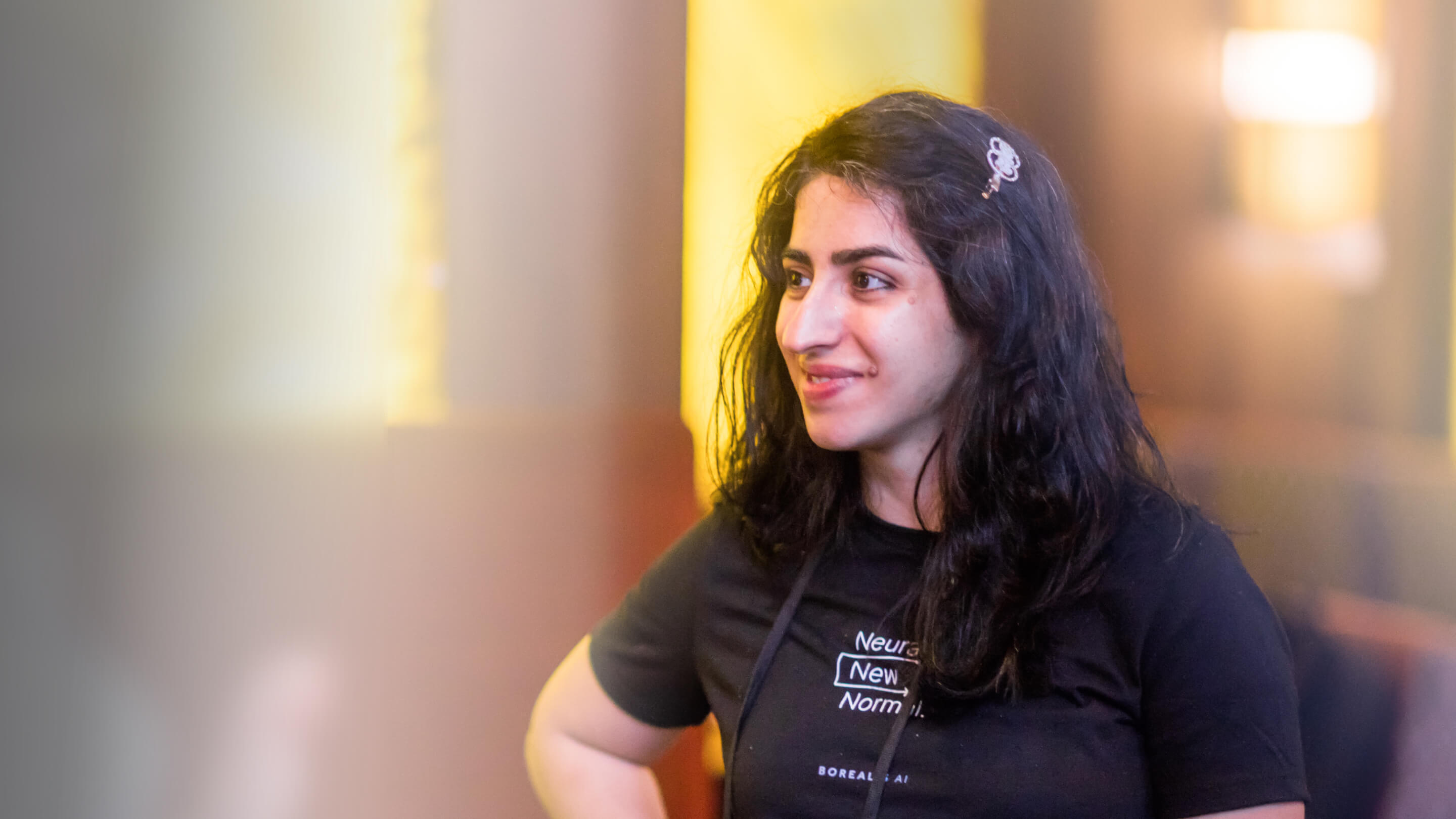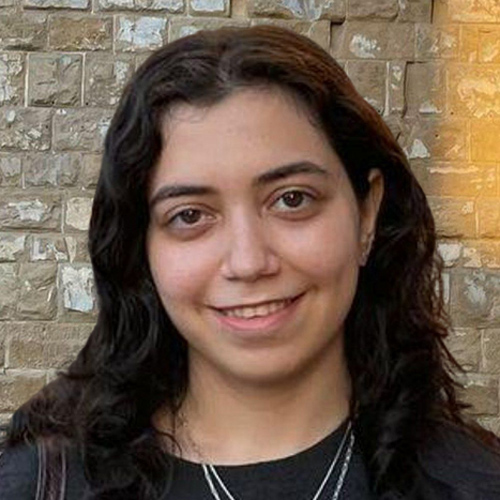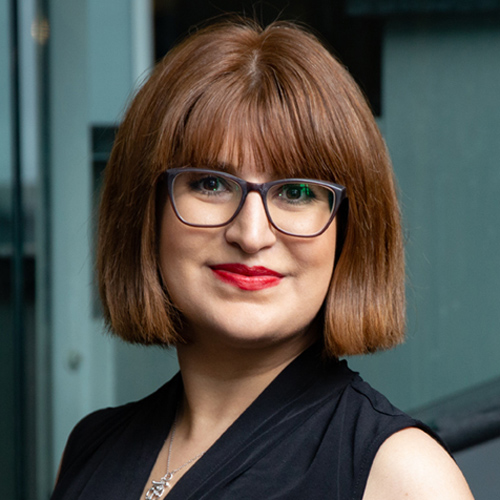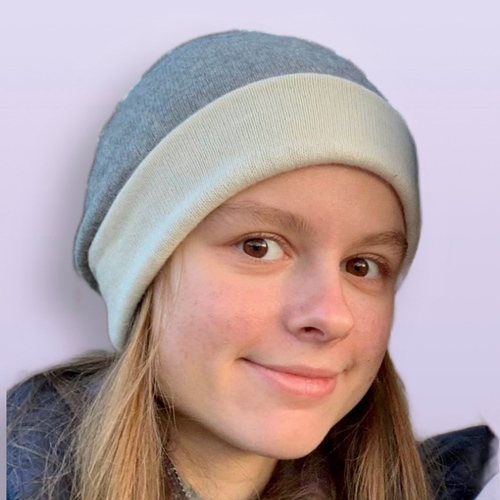
Meet the Women of Borealis AI’s 2023 Fellowship Class
In the field of AI/ML research, diversity sparks innovation, and at Borealis AI, this belief is at our core. The Borealis AI Fellowships are part of our ongoing commitment to grow and develop Canada’s thriving AI and ML ecosystems and further cultivate diverse perspectives that propel Canada’s AI community forward.
Today, we turn the spotlight to five exceptional women, among the ten recipients of this year’s fellowships, who are shaping the future of research and applications in AI. We asked these women to share their insights and advice on pursuing an education and a research career.
Can you share a brief overview of your research focus and what sparked your interest in this field?
My research focuses on the intersection of ML and robotics, with a particular emphasis on legged robots. My journey started with participating in high school robotics and programming competitions, which have persevered and evolved over time. I found myself drawn to the challenges of working on the combination of theoretical and hands-on robotics problems to this day.

Elham Daneshmand
McGill University, Borealis AI 2023 Fellow
Hattie Zhou, University of Montreal, Borealis AI 2023 Fellow:
My research broadly focuses on understanding how and why neural networks work, what makes them generalize when they might fail, and how to improve them. I study surprising deep learning phenomena from an empirical lens to gain insights into the mechanisms behind the surprising generalization abilities of neural networks. I became interested in this field and in research when I learned about the impressive capabilities of neural networks back in 2018, but I could not find satisfying explanations for how these capabilities emerge. I believe that the performance of modern neural networks far exceeds our understanding of them and that bridging this gap is a crucial step to building better, more trusted models.
Jingjing Zheng, Memorial University, Borealis AI 2023 Fellow:
My recent research mainly focuses on three topics: low-rank recovery, sparse representation learning, and the development of optimization-inspired interpretable deep neural networks. My interest in the topic of low-rank and sparse representation learning was sparked by a belief that complicated things are usually unbelievably simple. This fundamental belief has driven me to explore the distribution of real-world signals in low-dimensional sub-spaces or manifolds due to inherent signal similarities. Besides, the exploration of optimization-inspired interpretable neural networks aims to organically expand established priors into the field of deep learning in a natural and explainable way.
Zohreh Hajiakhondi Meybodi, Concordia University, Borealis AI 2023 Fellow:
For my Ph.D. studies, I am exploring diverse domains, including Communications Networks, Indoor Localization, and Healthcare, drawn by their societal impact. I am conducting research on optimizing communication networks using deep learning techniques like Transformers, enhanced indoor positioning through Reinforcement Learning-driven systems, and applied Contrastive Learning to medical data for predictive insights. This journey has honed my expertise in cutting-edge AI models, enabling me to address challenges across various data types and contribute to meaningful advancements in these crucial fields.
Anastasia Razdaibiedina, University of Toronto, Borealis AI 2023 Fellow:
I am currently working on foundation models and their application to biomedical science, particularly microscopy data. I have been interested in machine learning for a long time and wanted to develop and apply state-of-the-art methods from machine learning to large-scale biological datasets to extract new insights about protein roles in the cell. With the recent progress in NLP, I got interested in transformer models, and I discovered exciting research topics that span improving the efficiency of large language models, lifelong learning, and training generalist foundation models for biological imaging data.
What motivated you to pursue a graduate degree in ML or AI at a Canadian university?
The future of artificial intelligence is undoubtedly promising, but it still faces some challenges. The opportunity to engage in research within the fields of machine learning and artificial intelligence is undeniably thrilling. Canada is a global leader in AI innovation, making it the primary reason for my pursuit of a graduate degree here. Beyond this, Canadian universities offer an environment characterized by a harmonious work-life balance, allowing me the freedom to passionately pursue my research interests.

Jingjing Zheng
Memorial University, Borealis AI 2023 Fellow
Zohreh:
I decided to pursue a Ph.D. degree in AI because ML’s transformative potential to reshape industries through data-driven insights and automation resonates with me deeply. From revolutionizing medical diagnoses to powering recommendation systems, I am drawn to harnessing this potential, contributing innovative solutions, and shaping the future of technology. I chose to do my Ph.D. at Concordia University because Canada’s inclusive academic environment, coupled with its unwavering dedication to innovation and technology, makes it an ideal choice for me to thrive and actively participate in the dynamic landscape of AI/ML research and development.
Collaboration is key in research. Could you tell us about an experience where teamwork and diverse perspectives positively impacted your work?
In a recent medical research project focused on advancing kidney transplant procedures, collaboration stood out as the linchpin of our progress. Our diverse team, including medical practitioners, surgeons, machine learning researchers, and data engineers, sparked dynamic discussions and innovative approaches. Through cross-disciplinary exchanges, we applied ourselves to enhancing organ matching with machine learning. This is only one example that highlights the power of teamwork in achieving transformative breakthroughs.

Zohreh Hajiakhondi Meybodi
Concordia University, Borealis AI 2023 Fellow
Elham:
In robotics, which is a field that demands a diverse range of experiences, finding someone who is an expert in all aspects is challenging. Thus, collaborating with others and working as a team on a project is crucial. In our projects, people with different backgrounds work together to achieve the same objective. Working together and considering the problem from many angles enhances our ability to tackle complex problems.
Anastasia:
It is very fulfilling to work in an environment with people from diverse backgrounds. This includes both academic backgrounds and cultural/life experiences. I learn a lot from my colleagues, who share diverse (sometimes even opposite) opinions on research directions and experimental setups. This helps me to grow and be able to look at problems from different perspectives. I also believe that teamwork is essential for learning new skills and brainstorming ideas.
Jingjing:
The benefits of teamwork are evident throughout the research process. For instance, pursuing research in isolation can lead to the susceptibility of developing blind spots in one’s thinking, thereby causing even the most apparent things to go unnoticed. Collaborative effort is an effective way to avoid this. Besides leveraging the diverse strengths of team members, productive collaboration can lead to results faster. Working collaboratively towards a common goal is not only productive but also highly enjoyable; everyone contributes their unique expertise to the project.
Looking ahead, what are your aspirations for the future of your research career, and what advice would you give to other women considering a similar path?
I hope to continue to do research in industry after my graduation. I’m particularly interested in understanding the reasoning ability of large language models. As these models get deployed in the real world, it becomes more and more crucial to be able to characterize the capabilities and limitations of these models and to understand the factors that drive these behaviours. My advice to other women, who are interested in research on the science of deep learning, is to ask a lot of questions, get curious about unexpected results, and challenge the presumed explanations of how these models work. If possible, I would also recommend choosing a lab environment where people around you are excited by the same types of questions you are excited by, and there is a strong culture of collaboration and shared ownership. These environments are where I have learned the most and had the most fun.

Hattie Zhou
University of Montreal, Borealis AI 2023 Fellow
Zohreh:
My aspirations for the future of my research career are to become involved in innovative and impactful AI research institutes and collaborate across disciplines to address pressing challenges. My advice to fellow women considering a similar path is to believe in their capabilities, embrace challenges as opportunities, remain lifelong learners, celebrate achievements, inspire others, and challenge gender stereotypes. Their unique perspective can drive meaningful change in the research landscape.
Anastasia:
I would like to continue my work on large language models, ideally in a team of motivated people in a diverse and collaborative environment. I would advise other women considering a similar path to believe in themselves, always ask questions, and not be overly critical of themselves. Also, it is very important to find a good mentor or a team who can help you grow from a student into an independent researcher.
What significance does the Borealis AI fellowship hold for you? And how will it influence your research and education?
It is an incredible honour to receive a Borealis AI fellowship. This award motivates me to continue working on my current research projects and develop my future research agenda even further. Given the competitiveness of this fellowship, it is a significant milestone for me and an excellent support for my research objectives.

Anastasia Razdaibiedina
University of Toronto, Borealis AI 2023 Fellow
Jingjing:
I am deeply honoured to be selected for the Borealis AI fellowship, as it is a significant recognition of my work and efforts. Winning this award will provide me with strong support for my future studies and will give me additional motivation to continue my research in machine learning and AI.
Zohreh:
Being a recipient of the Borealis AI fellowship is incredibly meaningful to me. It opens a path for me to merge my research and education. I now have the opportunity to dive into cutting-edge AI exploration, connect with industry leaders, and access valuable resources. This experience will undoubtedly shape my career and enhance my contributions to the field.
About the Borealis AI Fellowships
These fellowships are part of Borealis AI’s commitment to support Canadian academic excellence in AI and Machine Learning. They provide financial assistance for exceptional domestic and international graduate students to carry out fundamental research as they pursue their Masters and PhDs in various fields of AI. The program is one of a number of Borealis AI initiatives designed to strengthen the partnership between academia and industry and advance the momentum of Canada’s leadership in the AI space.
To meet the 2023 class of Fellowship winners, go to the official announcement.